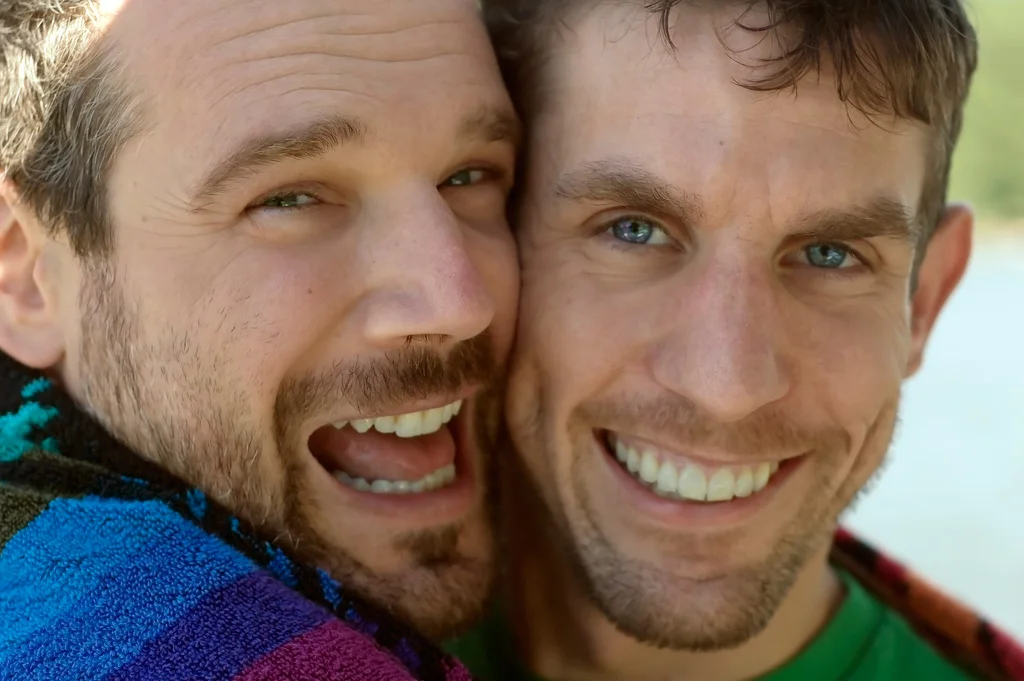Considerations for Gay Male Partners
When it comes to relationships, every couple has their own unique set of challenges. Differences of opinion, work ethic, cultural background, and political views—the list goes on and on. These differences become readily apparent during stage two of relationship development, coined the competitive or power struggle stage.
Stage two is entered when a couple decides to commit to one another by openly engaging in a large relationship change, such as agreeing to date exclusively, merging resources, moving in together, or starting a family. These big decisions stir unplanned emotional and physical reactions… cue competition!
In gay male couples, this struggle can be intensified by certain drives inborn to males. Therefore, it is critical for male couples to understand and acknowledge potential sources of conflict that may arise in this stage of relational commitment to proactively quell unhealthy competition.
Here are a few relationship challenges that may cause relational competition:
Money
Money can be a great source of stress in any relationship. For gay male couples, financial issues may even trigger unhealthy competition causing relational conflict if not managed correctly. For instance, American ideals traditionally recognize men to be the ‘breadwinners’ in relationships. However, in gay couples, both males may want to fulfill this role, causing unhealthy and competitive jockeying. Additionally, demographic differences between partners such as age, race, and cultural background can intensify disparities in earnings and financial values. Differences in financial preferences can cause feelings of inadequacy to indirectly hurt even the most resilient relationships. Truth is, money is largely tied to self-image, self-worth, and perceived success, especially for U.S. males. So, financial issues in gay male couples can instigate resentment and anger if not openly shared, discussed and addressed. Recognizing these norms, and the tensions surrounding finances, couples can proactively work to reduce financial conflict and share roles in providing. Remember: ‘providing’ extends beyond money!
Appearance
Unique in comparison to straight couples, many gay male couples may be subtly competitive when it comes to physical appearance. In general, men are more visually oriented than women, meaning they pay greater attention to visual appearance when selecting a romantic partner. Consequently, in gay male couples, many partners focus on and value – physical appearance, both individually and as a couple, which can lead to unhealthy comparisons and destructive competition to 'one-up' each other in terms of style and physique. If unchecked, this can manifest into a relentless competition for ‘beauty’ in couples, which can make it hard to love and appreciate individuality in these partnerships. This is a time to recognize substance versus packaging in your mate, and support those values in your relationship. Most importantly, this competition must be monitored to prevent the trigger of harmful mental and physical disorders.
Duties
Always pressed for time in today’s society, the topic of ‘equitable’ chore sharing can quickly cause stress for some gay male couples. While gender norms are evolving, even today, in many modern heterosexual relationships, a majority of housework still falls on women. Whether subtle or not, these deeply rooted gender norms can elicit competition in gay couples over who ‘wins’ the more traditionally masculine chores around the house (i.e. paying the bills, mowing the lawn, etc.). When there is a lot to get done, this chore tug-a–war can produce stress, perceived inequality, and lack of respect.
Friendships
In heterosexual couples, a night out with friends typically entails ‘females with females’ and ‘males with males.’ Yet, for many gay male couples, partners largely share the same circles of friends. On the one hand, this sets the scene for the development of incredible, lasting friendships that partners can share and find meaning in. Yet, it is only natural to sometimes need time and space alone, which can be challenging for gay partners. This can create unhealthy competition as partners ‘claim’ close friends and strive to be liked more by others within the same friendship circles. Since gay males also tend to have male friends, some with similar sexual preferences, this adds another layer of tension to ‘a night out with the guys.’ Even in secure and happy relationships, the threat of another impeding on a relationship can cause anxiety and jealousy. This is not only harmful to gay male couples, but it can also cause friends to become rivals as they compete against one another other in the same ‘dating pool’.
While you can’t prevent these challenges, or the unhealthy competition that may arise as a consequence, you can prepare by acknowledging that it might occur and staying open to handle them proactively.
Positive Practice
Communicate proactively with your partner and share what ‘works for you.’ Let your partner know what he can do to support your needs and why these actions help you.
Brush up on your financial literacy. Take classes together on how to better save and manage money, so that the finances become a joint effort.
Use chore cards to eliminate the discussion about ‘who does what’ around the house. Each partner selects chore cards from a stack at random, and these cards detail their specific house duties for the week.
Encourage your partner to make plans with friends, even if you can’t be there.
Spend time personally reflecting on your own needs. When you take care of yourself first, you will be more willing to support your partner without ‘keeping tabs.'
To learn more, check out the works we consulted:
Eagly, A. H., Wood, W. & Johannesen-Schmidt, M. C. (2004). Social Role Theory of Sex Differences and Similarities: Implications for the Partner Preferences of Women and Men. In A. H. Eagly, A. E. Beall, & R. J. Sternberg (Eds.), The Psychology of Gender (pp. 269-295). New York, NY, US: Guilford Press.
Howard, K. (2016). Gay Men’s Relationships: 10 Ways They Differ From Straight Relationships. HuffPost. Retrieved from: https://www.huffingtonpost.com/entry/gay-mens-relationships-ten-ways-they-differ-from_us_57950dd0e4b0b3e2427c9022
Kinney, J. The Four Stages of Relationships. Retrieved from: http://www.awarenessmag.com/julaug8/JA8_FOUR.HTML
Russell, E. The Three Dating Challenges for Gay Men. Retrieved from: http://gaystraight.com/dating/gay-dating-challenges/
Image Attribution: CC by 2.0
